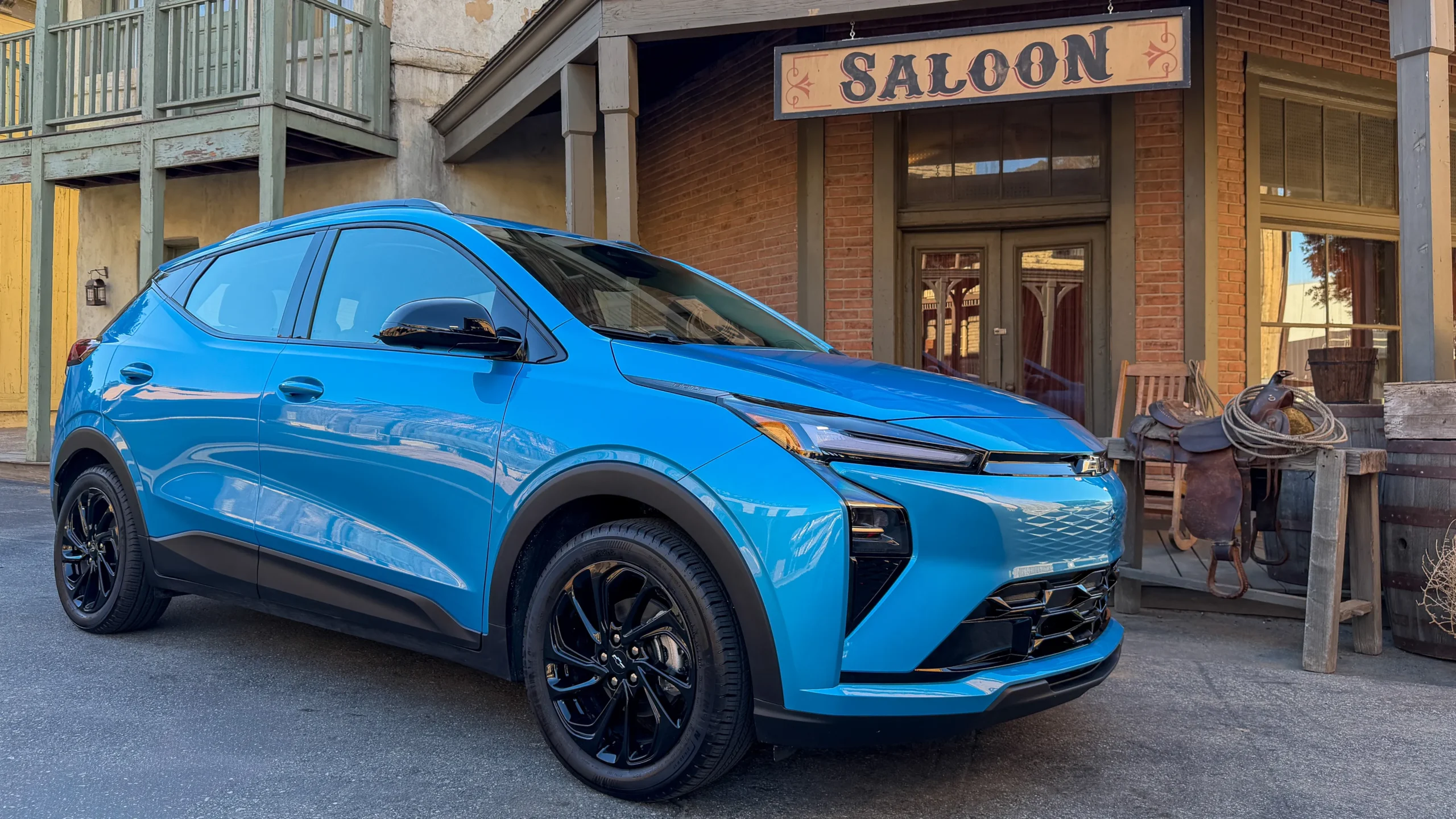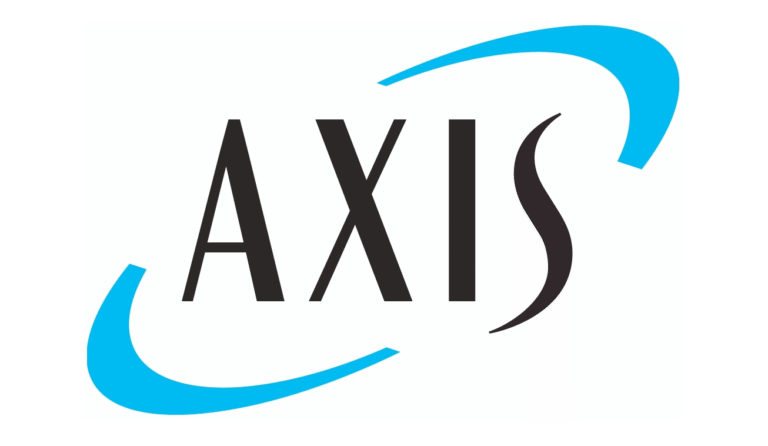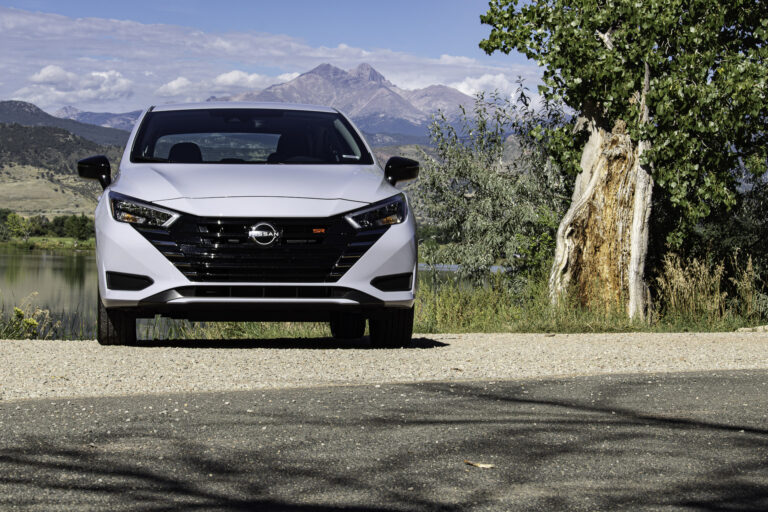

After a slight hiatus, the 2027 Chevrolet Bolt is nearly here — offering a more affordable EV…for now.
In the modern context, GM really kicked off its latest EV era with the first-generation Bolt nearly a decade ago. After an initial run between the 2017 and 2023 model years, the Bolt disappeared from the lineup, and an option for a reasonably affordable electric hatch went with it. Now, though, the 2027 Chevrolet Bolt is back and ready to launch in the coming months — sporting a price tag starting under $30,000 to boot. Chevy brought us out to Universal Studios in Los Angeles to check out pre-production versions of the new Bolt, giving us a much better idea of what to expect when this second-generation model takes on the Nissan Leaf for the title of best affordable EV.
“It looks a lot like the old one,” I hear you say at your screen. Even when Chevy teased the new Bolt a little while ago, its resemblance to the facelifted first-gen was unmistakable then. There have been some useful overhauls, though, as the company’s pitch is that it focused on customer feedback and giving those customers what they want with this new version. To that end, it still definitely looks like an EV with a decently angular faux-grille, slim DRLs and low-mounted headlights, while around back Chevy moved the lights up into a single unit (whereas there were lower brake lights/turn signals on the old one).


Two trims will be available for the 2027 Chevrolet Bolt: the LT and the sportier looking RS. The black wheels give away the game on the latter in its production form, as does the RS badging on the rear hatch and the front seat headrests. Overall, though, both models still pack a single electric motor at the front putting out 210 horsepower. It also packs a 65-kWh lithium iron phosphate (LFP) battery, which Chevy says makes this little hatch good for 255 miles on a charge.
The new Bolt uses GM’s in-house X76 drive unit, a permanent magnet motor which the company says has been designed from the ground up to improve efficiency and overall range while reducing waste heat (and energy loss) from its older generation electric vehicles.
Much better than the old car, though, is its DC fast-charging capability. Not only does the new Bolt adopt the Tesla-style NACS standard, but it also is now capable of charging up to 150 kW, up from the rather pokey 50 kW the old one managed. As a result, charging from 10-80% state-of-charge should happen in around 26 minutes. If you charge from a completely dead pack, expect the process to take about an hour. On the home charging front, the 2027 Chevrolet Bolt is capable of accepting up to 11.5 kW, replenishing about 40 miles for each hour of charging.
The 2027 Chevrolet Bolt also supports vehicle-to-home bidirectional charging. If you have your Bolt with a GM Energy Home System, it can power a properly set up home during a power outage.
The 2027 Chevy Bolt gets a tech upgrade, but keeps Super Cruise as an option.
Inside, the new Bolt gets a larger 11.3-inch screen resplendent in GM’s latest infotainment system, including Google Built-in. You also have USB-C ports on both rows, as well as available wireless phone charging up front. More than 20 standard safety features come baked in, including more nuanced systems such as Intersection Collision Mitigation, Rear Automatic Braking and, adjacent to that feature, Rear Cross-Traffic Alert. Super Cruise is still on the menu (as it was in the previous Bolt EUV), though it is an optional feature.
One-Pedal Driving has been upgraded to support multiple levels rather than just on and off, while you also get some nice touches like ambient lighting. Despite all the tech, Chevy did see fit to keep physical controls for the volume as well as the HVAC features, so you don’t have to dig for those. You also get an electronic column-mounted shifter, but you don’t get a physical start button. Like GM’s other latest-gen EVs, you just put your foot on the brake to start it up.
Pricing and (limited time) availability
When it goes on sale in early 2026, the new Chevrolet Bolt will be a price competitor to the Nissan Leaf. The RS model will launch in the first quarter, packing a price tag of $29,990 including the $1,395 destination fee. The Bolt LT will launch later on in the model year, with a price tag of $28,995.
However, Chevy’s PR and development team made one curious statement at the Bolt’s debut: It will be a limited run model. Their team said it will ship in the appropriate volumes to meet demand, but it already has an end date. That said, Chevy did not provide information on exactly how long the limited run will be — just a suggestion that, if you want the new Bolt, you should probably get one while you can.
FOMO notwithstanding, the 2027 Chevrolet Bolt does, even at first brush, make several notable improvements on the old one. We asked for some more clarity on exactly how long we can expect the second-gen Bolt to stick around, and will update this early review and subsequent posts and videos with that information.
This time around, GM plans to build the new Bolt at its Fairfax Assembly Plant in Kansas.





